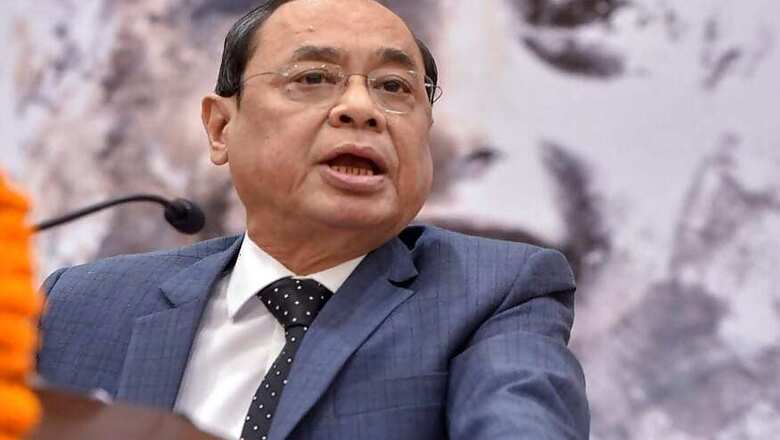
views
New Delhi: Supreme Court judge Ranjan Gogoi on Saturday said that Indian judiciary must have a consistent policy in matters relating to pendency of cases and batted for appointment of ad hoc judges given the shortage in lower courts.
As on date, there are 5984 judicial vacancies in district courts across the country, Justice Gogoi, the puisne judge of the apex court, said.
"The problem does not lie in the short tenure (of judges). It lies in the change of priorities with change of chief justices. The Indian judiciary must have a consistent policy," he said.
"Then if you have a policy and if you implement it, then the tenure will not be a matter," Justice Gogoi said.
He was speaking on the concluding day of the two-day conference on 'National Initiative to Reduce Pendency and Delay in Judicial System', organised by the Supreme Court of India in collaboration with the Indian Law Institute.
After day-long sessions on various topics related to pendency of cases and alternative dispute redressal (ADR) mechanisms, Chief Justice of India Dipak Misra said that the congestion of matters in courts could be tackled with a modern and progressive approach.
"The deliberations in this conference have substantially focused on strengthening the promotion of methods of ADR for facilitating timely settlement of disputes and that too in a cost-effective manner. However, I may add a caution, that never impose your views on mediation or settlement in Lok Adalat and judicial settlement," he told the conclave, attended by high court judges from various states.
Justice Misra said, "We should never send a wrong message. I would like to say-be enthusiastic but never be obsessed. Perseverance and enthusiasm are to be distinguished from obsession with an idea."
He said, "The court congestion and delays do require a modern and progressive approach where every judge takes the burden of judicial leadership and managerial skills of his court and the cases before him. That will help the system in promptitude and I am certain, we will see an effective result."
The chief justice also lauded the e-committee of the apex court and said that it was one of the most successful steps taken by the Indian judiciary.
Apex court judge Kurian Joseph had on Friday asked the Centre not to delay appointments to the higher judiciary and sought clearance of names by it in a time-bound manner after getting Collegium recommendations.
Amid speculation that the Centre was mulling increasing the age of superannuation of judges of the apex court and the high courts, Justice Joseph had suggested at the conference that the age of retirement be raised to 70 years.
At present, apex court and high court judges demit office at the age of 65 and 62 years respectively.



















Comments
0 comment